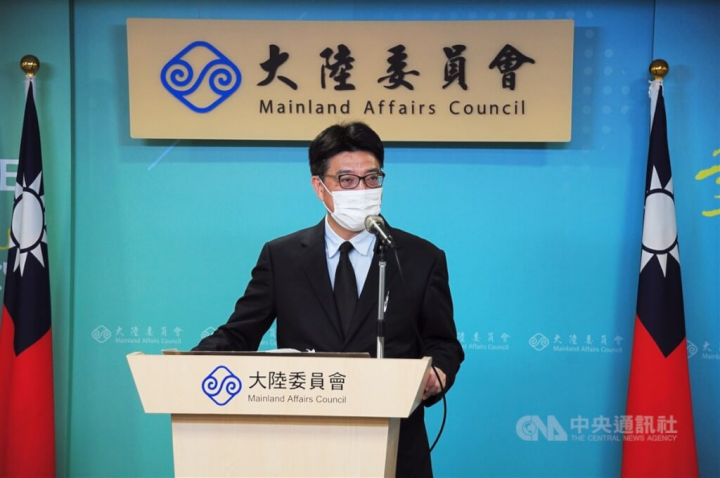
Taipei, Aug. 10 (CNA) Taiwan's Mainland Affairs Council (MAC) on Wednesday blasted China's newly released white paper on Taiwan as "full of wishful thinking and disregard for facts" while reaffirming its position that neither side of the Taiwan Strait is under the jurisdiction of the other.
In a press release, the MAC said it "forcefully protested" the 13,000-word white paper published by China's Taiwan Affairs Office earlier that day under the title "The Taiwan Question and China's Reunification in the New Era."
After threatening Taiwan with military force for consecutive days, China has published a white paper that repeats "the same old pro-unification clichés" with disregard for both international law and the realities on both sides of the Taiwan Strait, the MAC said.
Describing the paper as "full of wishful thinking, disregard for facts, and lies," the council accused China of trying to paper over its threats against Taiwan's sovereignty with talk of "post-unification development prospects."
Countering Beijing's arguments for unification, the MAC noted that "the Chinese Communist Party has not ruled even for a single day over Taiwan, Penghu, Kinmen or the Matsu Islands."
"Taiwan insists that neither side of the Taiwan Strait has jurisdiction over the other and firmly rejects the 'one country, two systems' principle," it said. "This is the status quo and the current reality in the Taiwan Strait."
The MAC's furious rebuttal followed Beijing's release earlier that day of its first white paper on Taiwan since 2000, in which it repeated its warning that it would not rule out using its armed forces to take the island.
"We are ready to create vast space for peaceful reunification -- but we will leave no room for separatist activities in any form," the white paper said, adding that China "will not renounce the use of force" and "reserve(s) the option of taking all necessary measures."
However, the paper also specified that such drastic measures were "the last resort" and would only be used to "respond to the provocation of separatist elements or external forces should they ever cross our red lines."
Meanwhile, the white paper reiterated that China continues to view "one country, two systems" as a basic principle for "resolving the Taiwan question."
"To realize peaceful reunification, we must acknowledge that the mainland and Taiwan have their own distinct social systems and ideologies. The 'one country, two systems' principle is the most inclusive solution to this problem," it said.
The white paper also had strong words for Taiwan's ruling Democratic Progressive Party (DPP), which it said had refused to recognize the one-China principle while promoting "de-sinicization" and "incremental independence."
These actions, which have ratcheted up tensions and endangered peace and stability in the Taiwan Strait, are "obstacles that must be removed in advancing the process of peaceful reunification," according to the white paper.
The U.S., meanwhile, is accused in the paper of "clouding the one-China principle in uncertainty and compromising its integrity" by conducting official exchanges with Taiwan, increasing arms sales and "colluding in military provocation."
More broadly, it asserted that these efforts by "external forces" seek to "use Taiwan as a pawn to undermine China's development and progress," at the expense of the Taiwanese people.
China-Taiwan and China-U.S. tensions have recently spiked to their highest level in decades, as China launched an unprecedented set of military exercises encircling Taiwan following a visit to the island by U.S. House of Representatives Speaker Nancy Pelosi last week.